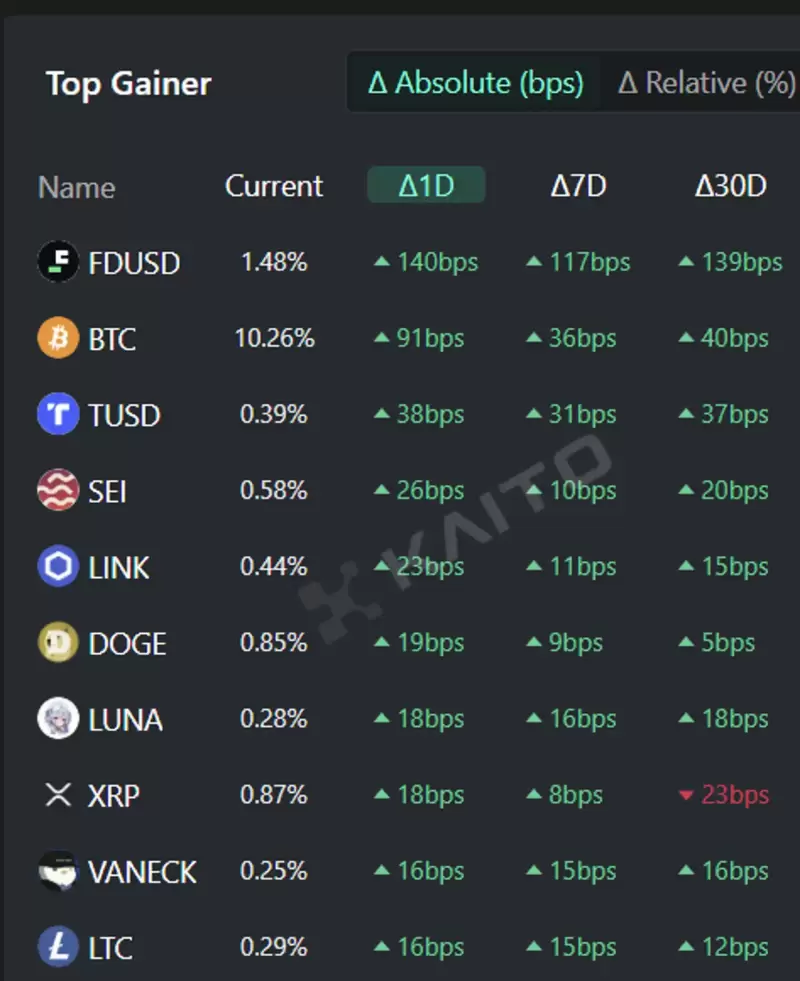 |
|
 |
|
 |
|
 |
|
 |
|
 |
|
 |
|
 |
|
 |
|
 |
|
 |
|
 |
|
 |
|
 |
|
 |
|
Cryptocurrency News Articles
This Is Why Bitcoin and Crypto Are Here to Stay
Jan 11, 2025 at 01:00 am

As Donald Trump edges closer to reclaiming the presidency, the world is finally waking up to bitcoin’s legitimate (and even central) role in the future digital economy.
The broader ‘crypto’ world, however, remains mired in skepticism for many. Gary Gensler – the soon-to-exit chairman of the Securities and Exchange Commission (SEC) – is no bitcoin fan, but still believes the distinction between BTC and “the rest” is appropriate.
“The public knows a lot about bitcoin… and then there’s everything else,” he said in a recent interview with Bloomberg. “I’ve never seen a field that’s so much wrapped up in sentiment, and not so much about fundamentals. These ten thousand to fifteen thousand projects, many of them will not survive.”
While Gensler's assessment has merit, the idea that crypto is merely a speculative playground with no fundamental value is both neglectful and outdated. There are plentiful reasons for bitcoin and tokens beyond it to exist alongside each other and carry lasting value.
The public deserves to know the nature of such assets. Here are just a few of them:
Bitcoin: Digital Gold
Launched in 2009, bitcoin introduced the world to blockchain technology and created the first truly digital, decentralized monetary system.
With its fixed supply of 21 million coins and robust security through proof-of-work mining, Bitcoin has established itself as "digital gold" – a permanent, predictable store of value and hedge against inflation.
This remains Bitcoin's primary use case, as institutional investors and even nations are now adding it to their balance sheets.
With President-elect Donald Trump promising to establish a “strategic national bitcoin stockpile” to help tackle the nation’s debt, the United States could soon be among them.
Stablecoins: Digital Dollars
Stablecoins like USDC and USDT maintain a 1:1 peg with the U.S. dollar, combining the stability of fiat currency with the efficiency of blockchain technology. These have become highly popular for International remittances, crypto trading, cross-border business transactions, and DeFi (decentralized finance) applications.
Stablecoins see some of their strongest adoption in developing nations like Nigeria, where access to traditional banking is limited, yet demand for USD is high to escape the devaluation of citizens’ local currency. A report from Castle Island Ventures last year found that over 77% of Nigerians held more than 10% of their assets in stablecoins.
Digital Securities
Security tokens represent ownership in real-world assets, from real estate to company shares. These are digital versions of traditional securities, regulated under existing securities laws but benefiting from blockchain's efficiency and transparency.
One example includes BlackRock’s first tokenized fund launched last year, giving institutional investors on-chain access to US dollar yields.
Utility Tokens
Many cryptocurrencies function as utility tokens, which serve specific purposes within their respective ecosystems.
Gas tokens, for example, are used to pay for computation and transaction processing on blockchain networks. Ethereum's ETH is the most well-known example, required for all transactions on the Ethereum network.
Such tokens often also double function as staking tokens. Examples include ADA (Cardano) and SOL (Solana), where token holders can "stake" their assets to validate transactions and maintain network consensus.
Meanwhile, “governance tokens” give holders voting power over a given blockchain protocol, with its community of holders collectively known as “decentralized autonomous organizations.” Uniswap, a the world’s largest decentralized exchange, uses UNI as its governance token.
Memecoins: The Speculative Side
In an online investment community where members so often call themselves “degens,” it would be disingenuous not to acknowledge how speculative the crypto market is.
Memecoins like Dogecoin (DOGE) and Shiba Inu (SHIB), while starting as jokes, have attracted significant investment and created entire communities. While these may seem frivolous, they've demonstrated the power of social coordination and community-driven value creation in the digital age. For many, they are a fun and community-driven form of gambling.
To the surprise of many, DOGE is one of the only assets in crypto to keep pace with Bitcoin’s performance over multiple four-year crypto market cycles.
The Revolution Beyond Tokens
Focusing solely on cryptocurrencies as tokens misses the bigger picture. Their underlying blockchain technology represents a fundamental shift in how we can structure digital ownership, whether it relates to financial assets, data, or your identity.
The real innovation is the ability to maintain a single, shared source of truth across a distributed network without requiring trust in any central authority. This has implications for supply chain management, healthcare records, intellectual property rights, voting systems, and much more.
Many of today's cryptocurrencies will likely fade away, just as many early internet companies didn't survive the dot-com bubble. However, digital asses and their core use cases – from digital store of value to programmable money to decentralized computing
Disclaimer:info@kdj.com
The information provided is not trading advice. kdj.com does not assume any responsibility for any investments made based on the information provided in this article. Cryptocurrencies are highly volatile and it is highly recommended that you invest with caution after thorough research!
If you believe that the content used on this website infringes your copyright, please contact us immediately (info@kdj.com) and we will delete it promptly.
-

- Ripple (XRP) Introduces Its RLUSD Stablecoin to the Stablecoin Market
- Apr 03, 2025 at 04:00 pm
- Ripple introduced its RLUSD stablecoin to the stablecoin market through its launch on Kraken cryptocurrency exchange. The USD-pegged stablecoin aims to boost its cross-border payment functions and integrate with the payment platform.
-

-

- Bitcoin (BTC) Price Consolidation May Be Precursor to a Market Drop, Analyst Says
- Apr 03, 2025 at 03:55 pm
- Bitcoin has seen a notable price consolidation over the past few weeks, trading between the $84,000 and $86,000 levels. Despite the initial surge in price, the cryptocurrency has faced a decline of 3.7% in the past week and nearly 10% in the past month, signaling a period of stagnation in its upward momentum.
-

- The OFFICIAL TRUMP price plummeted over 9% in the last 24 hours to trade at $9.29
- Apr 03, 2025 at 03:55 pm
- The drop in the TRUMP price comes after US President Donald Trump signed an executive order establishing reciprocal tariffs on trading partners and a 10% baseline tariff on all imports from all countries.
-

-

-

- FDUSD, BTC, TUSD, SEI, and LINK are the top 5 virtual asset-related keywords attracting the most interest
- Apr 03, 2025 at 03:45 pm
- According to the Token Mindshare (a metric quantifying the influence of specific tokens in the virtual asset market) top gainers from the AI-based Web3 search platform Kaito
-

-





























































